- Category
- War in Ukraine
The War Crimes Committed by Russia Against Hospitals in Syria And Ukraine
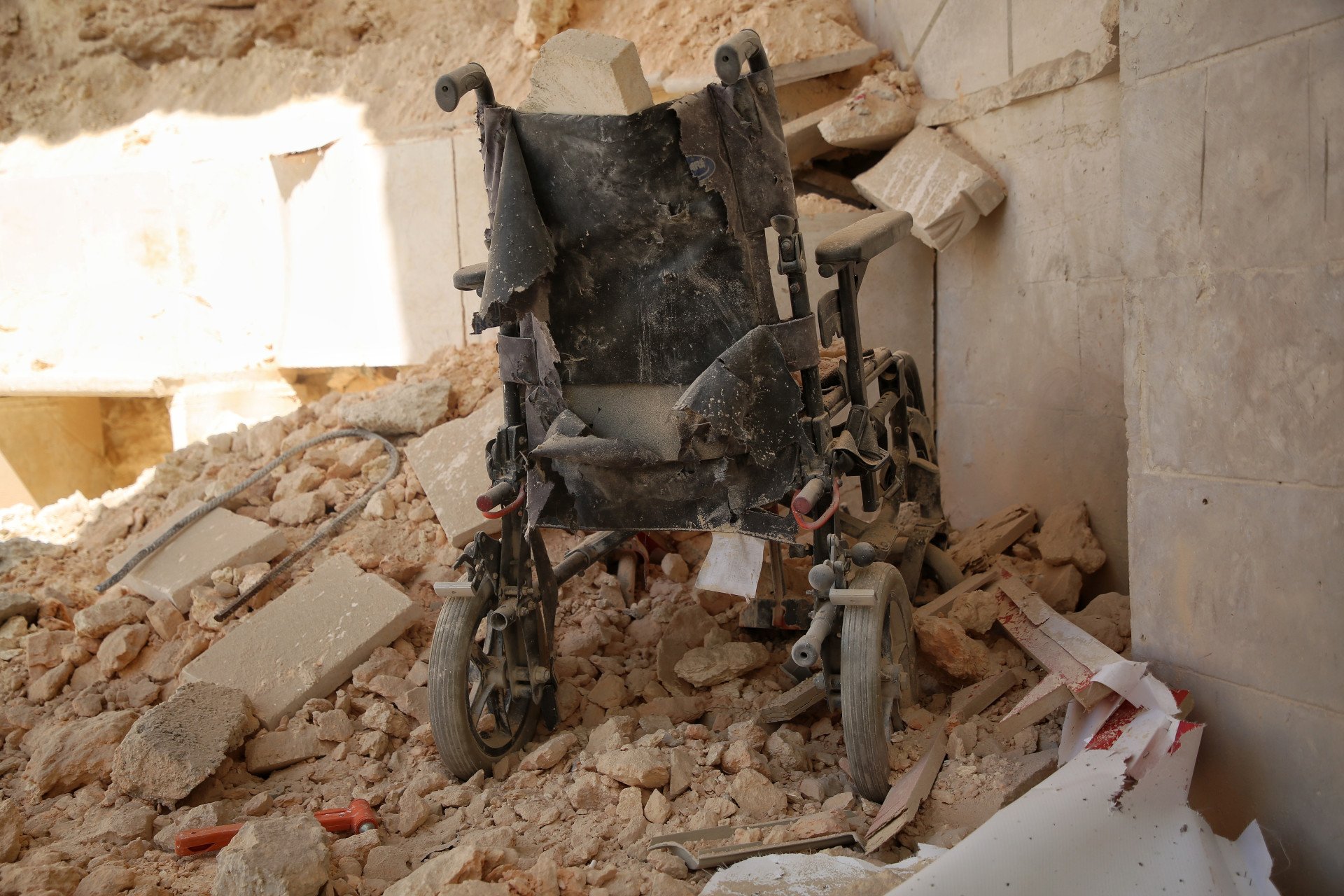
Dr Zahed “Hamza” is a Syrian doctor who founded Al-Qudes Hospital in Eastern Aleppo during the Syrian war. Hamza talks to us about the systematic targeting of hospitals and medical workers and how Russia’s war crimes seen in Syria are being repeated in Ukraine.
Hamza’s hospital was the only remaining medical facility during the siege of Eastern Aleppo and was victim to relentless Russian and Syrian military attacks. Russia began using military tactics in Syria which are seen today in Ukraine, specifically targeting hospitals and their medical workers.
Hamza has worked under severe conditions and was witness to countless Russian war crimes, documented by his wife, Waad, in the award winning film ‘For Sama.’ Hamza founded a project ‘Action for Sama’ and ‘Stop Bombing Hospitals’ to work towards justice and accountability for the war crimes committed by the Syrian and Russian regimes.
He talks to us about Russia’s systemic attacks on medical workers in Syria and how without justice, accountability and voices of people experiencing Russian War crimes—Russia’s brutality won’t end.
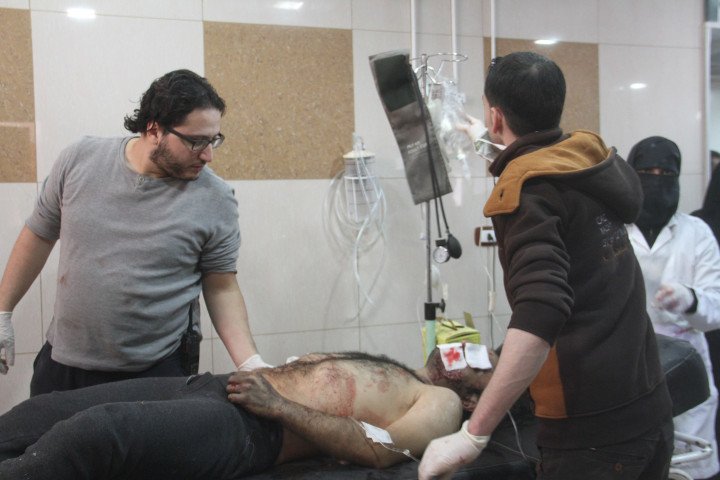
What were your first thoughts when you saw the attack on Ukraine’s Ohmatdyt hospital?
It brings back a lot of memories to when we worked in Syria. The Syrian and Russian regimes made it clear that hospitals and first aid points were main targets, even during the peaceful protests, anyone who tried to provide medical help to the protesters, were targets.
We know that the Syrian regime was using Russian military tactics, they were like ‘junior’ war criminals compared to Russia. Something that frustrates me is that you hear about one hospital attack, while actually there are like over 600 attacks on healthcare facilities in Ukraine, it was the same in Syria. The world still doesn’t realize the scale of these attacks, but it's become the new normal. We’ve seen it in Syria, in Gaza, in Ukraine.
I had a doctor once tell me that during the Second World War, the Russian army had a saying “Killing or targeting a German doctor on the front lines is equal to killing more than 10 soldiers”. I haven't verified this saying, but it says a lot.
Hospitals are not safe anymore in war zones and have been bombed continuously in conflict areas, and unfortunately, war criminals learn from each other. I don’t know how the world can bear such war crimes.
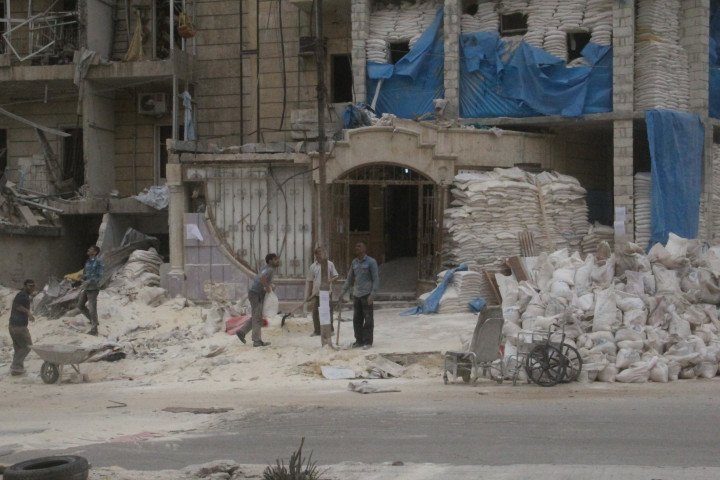
What sort of attacks did you experience in your own hospital?
I'm a civilian, I've never been to the military, during my medical training I'd never learned to distinguish between different weapon use, but now I can literally tell you from the sound which weapon is being used, “Oh this is a mortar, this is a Syrian regime aircraft or this is a Russian missile.” You learn from the sound how to prepare yourself and what wounds are to come.
We’d seen locally made explosives, similar to mortars, but when Russia came, we experienced white phosphorus, chlorine gas attacks, cluster bombs and more. Our hospital was subject to attacks like these, explosive barrels, mortars, even a floating gas attack.
During our hospital's main attack, we were targeted with two missiles, most likely from a Russian aircraft. More than 53 people were killed in that attack, mainly civilians.
There is no investigation about it, no accountability even though it happened in April 2016 and we have evidence of the whole incident, the impact produced by the missile and CCTV of the attack.
What psychological impact does targeting hospitals have on civilians?
Hospitals are meant to be a source of hope. They want to crush the people's hope. They want to plant fear into people and make them afraid to go to hospitals.
In most conflicts hospitals are near the frontlines, but not in Syria, Iran or Ukraine. Healthcare workers don’t need to be close to the frontlines to be targeted, they’re often further inside the country and not even related to the frontline.
In Syria, people were afraid to stay in a hospital. If we wanted to hospitalize a patient for 10 days for example, they would ask to take their medication home because being in hospital is risky.
After the attack in 2016, we relocated the hospital and locals living near the new hospital fled their houses because they thought they were more at risk. Usually you'd be happy to have a healthcare facility near you.
If they crush the will of the people, people will leave and if there are no civilians, there is no reason for people—such as the Syrian Free Army—to fight.
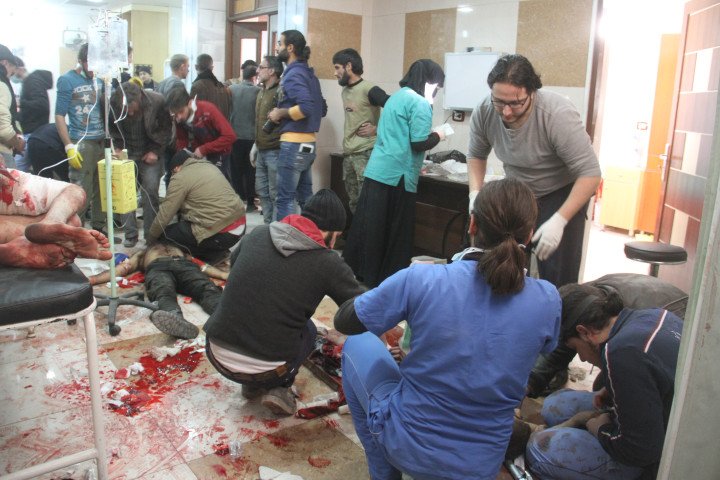
How do you continue to work under such brutal conditions?
I was working for four years in the conflict area, and knowing that you are the main target, it’s hard to be honest. Looking back, I don't know how we managed to do it. Before the war it was always a normal patient and doctor relationship, but during the conflict in East Aleppo I realized that providing medicine became a way of fighting, a way of helping peoples resilience.
Before the biggest strike to our hospital in 2016, every year we had smaller attacks, losing a floor of the building for example but we would get back to work immediately. My friends and I had a joke, “We still have dust on our clothes, let's have a shower first before we get back to work.”
I feel like it’s a way of fighting back, we're going to stay working against all the odds. We'll keep providing healthcare and hope.
Why target a maternity hospital? Because it brings more destruction, it will crush the whole community. So we’d fight and keep working to help the community to stay in their hometown which is a basic human right.
When Russia claims that they targeted a hospital treating soldiers, the counter argument is that the Geneva Convention started to protect healthcare workers treating soldiers. It's not a crime and we don't deserve to die.
Syria was the most documented war in history, before Ukraine. Even with amounting evidence, do you think we'll ever find justice and accountability?
I can't clearly say that I can see light at the end of the tunnel but what I'm sure about is, we are in the tunnel and we need to keep walking, because if we stop, we'll just be there forever. While we keep walking, hopefully one day, we'll see the light and we'll reach there.
We need to keep shouting about these war crimes, we need to keep saying that we won't forget. The attack on Al Quds hospital was almost a decade ago. We can’t forget, we must keep talking about what happened in Mariupol, Aleppo, Gaza, Sudan and in Afghanistan. Hopefully one day accountability will happen.
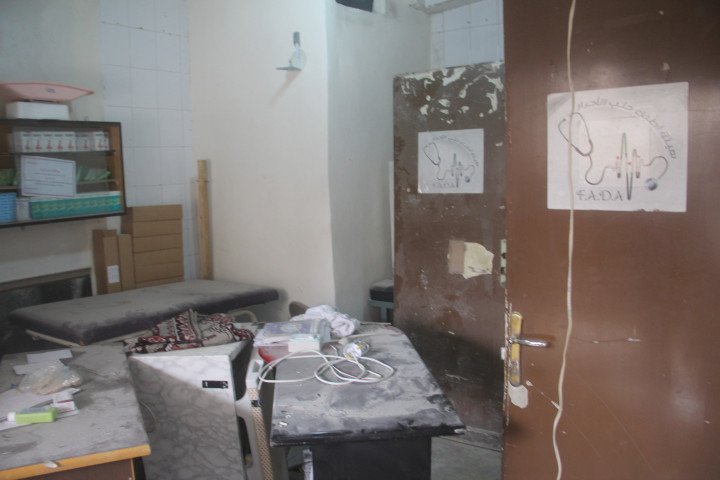
Russia also announced that although the war is officially over in Syria, they're not leaving. Do you think that things would be different if Russia left Syria?
Without Russian involvement in Syria, things would be so different. The scale of brutality that they provide in terms of how heavy the weapons that they're using would be less, we hadn’t seen cluster bombs or white phosphorus until Russia’s involvement.
The scale of their aircrafts and missiles are very different from the Syrian ones. The difference between Syria and Ukraine is that we're fighting against our own government. We don’t have military defense systems to protect us from Russian aircraft.
The Russian presence in Syria, from my perspective, is that they only care about being a stakeholder there and about control. They don't care about the Syrian regime. They just want to be there.
The Syrian regime has a different response. In some areas like southern Syria, there has been almost two years of protesting every day and they like isolating areas to make sure that those protests don't spread. With all the reasons that made us protest against the Syrian regime in 2011, now it's at least doubled. The level of corruption, the economic situation, the lack of freedom of speech, the lack of human dignity is way worse now than it was in 2011.
I'm pretty sure the Syrian people will rise again. There is no peaceful way to get rid of tyrants and dictators.
Regardless of everything that you've been through already, you still want to come to Ukraine and to put your life at risk again to save other people. Describe your drive to fight against Russia.
When the Russian invasion started there were a couple of announcements for volunteers to come to Ukraine. I actually wrote to the Ukrainian Embassy in the UK to say that I'm a Syrian doctor, I have this experience, and I would love to work there.
Some people think that we support Russia but we Syrians were also subjected to Russian war crimes. There is always that small fire in me that says that any fight against Russia, I'll go there. The more crimes they commit, the more powerful they'll get, then, they’ll move to a different place, they won't stop.
Ukraine wasn't the start and it won't be the end so we really need to act. Any single accountability case that happens, will start this domino effect for more cases, or at least, will stop them to think twice before committing a war crime. Hopefully.
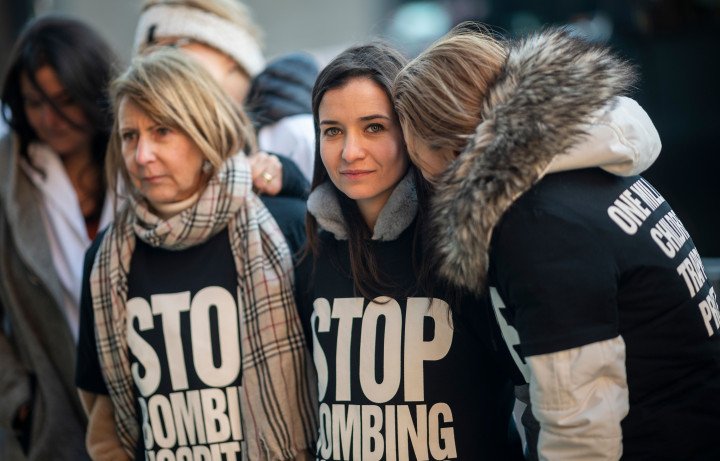
How important was it for your family to make the film ‘For Sama’?
In Syria documenting what was happening was a very important aspect of our fight against Russian propaganda. In Russian related wars everywhere, you feel that you need to fight to prove that you exist in the first place.
And that's why Waad made our ‘For Sama’ film, to document every moment, from the beginning of the protest until we were displaced, just like ‘20 days in Mariupol’, it's very important to show that civilians live in these wars.
I’m glad that people are starting to understand the similarities between Ukraine and Syria because when Russia is involved, it’s very clear, civilians are the main target. We need to stand all together against this brutality that we're facing.
-46f6afa2f66d31ff3df8ea1a8f5524ec.jpg)
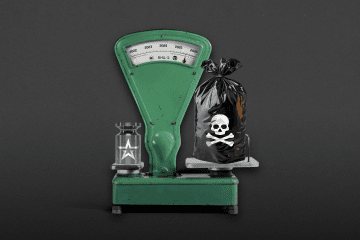
-29a1a43aba23f9bb779a1ac8b98d2121.jpeg)
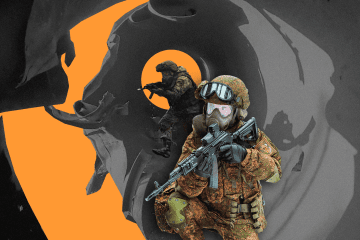
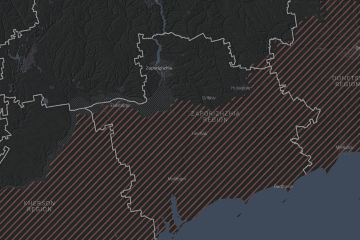
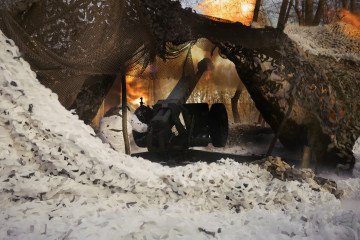
-0666d38c3abb51dc66be9ab82b971e20.jpg)